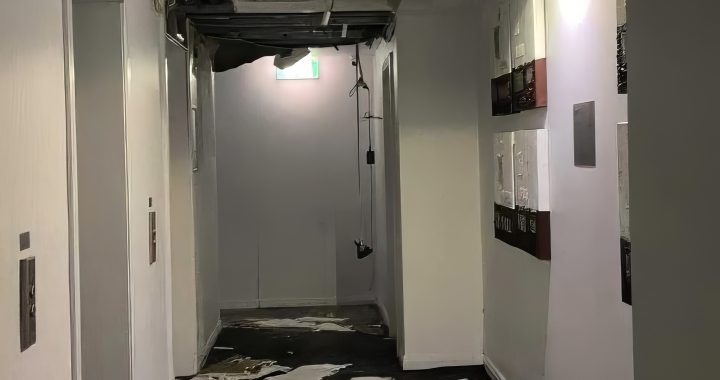Unfinished legal actions could cost owners hundreds of thousands of dollars. Owners have little or no way of knowing what is happening in several expensive cases due to a lack of transparency by the current body corporate committee.
We list several cases where information has been concealed. These cases demonstrate a lack of transparency by the committee. Transparency means being open and honest about what you do. It’s a necessary step in fostering a culture of trust and is essential if owners are going to understand body corporate matters and successfully manage their apartment finances in an informed manner.
1. Removal and/or omission of records from the body corporate portal
The Southport Central Residential Community ‘Portal’, to which all owners have access, is
maintained by the Body Corporate Manager (BCM). You can access the portal on your
computer using the login information and password provided by the Body Corporate Manager or on your mobile using the Community app found on the Apple and Android App Stores.
The portal is effectively the only means by which owners can keep abreast of information
concerning the body corporate and is therefore of vital interest to all owners.
Until July 2023, owners could access the portal ‘Financials’ tab which included details of invoices submitted by, and payments made to, service providers. It allowed owners to see how our body corporate monies were being spent.
However, the Financials tab was removed after the Body Corporate manager was asked why access to invoices issued by the body corporate gardener had been blocked. Rather than unlock access to the gardener’s invoices, the BCM removed the Financials tab entirely (including the General Ledger) from the portal. The BCM has not responded to requests to re-instate the ‘Financials’ tab.
The ‘Financials’ tab could not have been removed without the knowledge of the committee.
The questionable actions previously included a payment of more than $50,000 for legal costs from body corporate funds. A legal company had provided services to the company CTS 35751 Investments Pty Ltd, not the body corporate and had erroneously invoiced the body corporate. It was paid by the Body Corporate Manager from body corporate funds and the payment apparently not disputed by the committee at the time. The body corporate was subsequently re-imbursed, but the entirety of this ‘error’ was never disclosed to owners and would not have been discovered save for the investigations of the Adjudicator.
In the Adjudicator’s words: “. . . there appears to have been a wholesale failure of even a basic level of appropriate and transparent decision-making and record-keeping over an extended period . . . . decisions to invest in the company, would appear. . . to have occurred in a procedural vacuum. There appears to be an extraordinary lack of records. There also appears to have been very little disclosure to owners as to what was being done.”
If you don’t have access to the portal, or have forgotten your password, just email the Body Corporate Manager: cmg@completemanagementgroup.com.au Click here if you’d like to download the Adjudicator’s report.
2. The legal dispute with the Southport Central Commercial Body Corporate
In August 2019, a body corporate newsletter reported a long running dispute over the Residential Body Corporate arm of Southport Central paying a disproportionate share of expenses for the overall operation of the Southport Central site, which it shares with the Commercial arm, three Retail Body Corporates and Australia Fair. It was estimated that the Residential arm overpaid by $4 million. As a result, Residential withheld contributions to the common property electricity costs. Commercial then started legal proceedings.
Our committee told owners that they would be defending the proceedings and counterclaiming to claw back this money. The newsletter concluded “We will endeavour to keep owners updated and believe this process will result in a significant reduction in levies.”
Despite repeated requests for information, successive committees did not update owners. However, in June 2022, a committee member told a committee Q&A session (attended by just 16 owners) that the legal dispute had settled along the lines that “neither party would pay anything to the other, and that both parties would bear their own legal costs”. This was despite Residential incurring legal expenses of about $150,000 which included engaging a solicitor, barrister and Kings Counsel. No further details were disclosed.
However, the matter hasn’t ended there and it seems our body corporate is still incurring legal costs. Committee meeting minutes dated 31 August this year says Southport Central Commercial action against Southport Central Residential is amongst legal matters noted as ‘current and ongoing’.
We don’t know what, if anything, has been achieved to date, and what exactly is the present status of this unresolved issue despite the spending of $150,000 of owners’ funds.
3. Unresolved debt issue with Metered Energy Holdings (MEH)
In October 2018, a body corporate newsletter reported that Southport Central Residential had changed its electricity and gas supplier from MEH to Flow Systems.
At the AGM in the same year, the body corporate approved the purchase of three gas hot water heater systems for up to $150,000, subject to a final valuation.
However, there is no available record that this purchase occurred, or confirmation as to who owns the hot water systems that Residential continues to use and maintain despite terminating the MEH contract as Southport Central Residential’s energy and gas supplier.
This raises the following questions:
- Does the body corporate or MEH own the hot water systems?
- Is the body corporate at risk of legal proceedings arising from this issue?
4. Unpaid invoices from Altogether Group estimated at $480,000
A dispute eventually arose between Flow Systems and our body corporate. In February 2021, the committee passed a motion not to pay invoices previously issued by Flow Systems (renamed as Altogether Group) and all future invoices for ‘common property’ electricity. The committee alleged that communications and negotiations between the supplier and the committee had been “unsatisfactory”, but no explanation was provided by the committee.
Common property electricity is for lighting across the complex, lifts, air-conditioning, carpark lighting and exhaust system, security system etc. As a result of the committee’s decision, invoices for common property electricity costing about $20,000 per month were not paid between February 2020 and February 2022. The two-year financial liability is calculated at about $480,000.
In March 2022, solicitors for Altogether Group, wrote to the Body Corporate concerning the outstanding accounts. The Body Corporate Manager denied receipt of such a letter but later paid an invoice from Herd Lawyers for “Professional fees for all attendances up to 5 April 2022” in response to a letter received from Hall & Wilcox regarding alleged outstanding accounts.
At the 8 June 2022 Q&A session, the committee denied there were unpaid invoices but offered no explanation as to why this could be so. We all know that all electricity is not free and that Altogether has threatened debt recovery proceedings over these unpaid invoices, including interest and court costs.
The Committee has been asked to explain exactly where this matter stands but won’t say. Silence is NOT golden. Altogether have six years to recover the debt but do we want this issue hanging over our heads??
5. Removal of Altogether Group as our Energy Supplier
In what can only be described as dubious circumstances, the committee proposed a motion at the October 2021 AGM to replace Altogether Group with Locality Planning Energy Pty Ltd (LPE) for the supply and billing of electricity, hot water heating and cooker gas.
The motion is described as ‘dubious’ as owners were intentionally misled by the committee which presented a quote from LPE, but submitted a quote ‘attributed’ to Altogether, which had been prepared in January 2020 and was valid only until 30 June 2021. The expired quote used by the committee gave the impression that it had obtained two competitive quotes, when only one new quote had been sought, that being from LPE. At the very least, this was intentionally false and misleading, a slight of hand, the committee assuming that naive owners would not notice what had been done.
Despite several requests, neither the committee (nor the Body Corporate Manager who published the material) has not have provided an explanation as to why they engaged in such conduct.
Owners are invited to draw their own conclusions.
6. Investment Adviser’s Report
We have detailed the Body Corporate’s dubious action to spend almost $1.5 million of owners’ funds on buying four apartments in the name of a company established and operated by the then chairman of the body corporate committee and now under the control of the present Chairman. Not only was the activity ethically questionable, the body corporate’s own financial adviser had warned about the plan.
The committee had told owners and a Body Corporate Commission Adjudicator that it had relied on the investment advice provided by Innovative Financial Solutions (IFS).
The IFS report was initially provided to the committee in June 2020, but was not posted publicly on the community portal until just a few days before the 2020 AGM. The timing was too late for most owners to read and consider the report before they voted at the 2020 AGM.
Importantly, the IFS report did NOT advise the committee to invest in residential property, as they had claimed. The report cautioned against investing in real estate. It warned about “a lack of diversity in investments”. It said: “alternative investment vehicles and asset classes are not being addressed in detail in the light of your decision to invest in residential property”/ The IFS report said it was unable “to draft an actual investment strategy document”; and concluded that “you are still heavily exposed to residential property”. The Body Corporate Adjudicator concluded: “I do not consider that the decision to invest in the Company was in accordance with the IFS advice.”
It seems this highly relevant report was removed from the community portal because it did not support the Committee’s investment scheme. In September 2022, the Adjudicator ordered that the body corporate “divest itself of its current shareholding CTS 35751 Investments Pty Ltd and recover the funds invested in that company”.
A copy of the Innovative Financial Solutions (IFS), ‘Statement of Advice’ can be found here.




